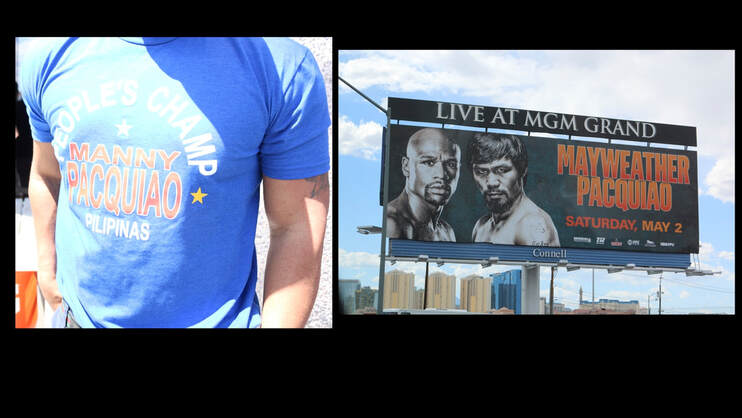|
|
|
Boxing fans and pundits might be familiar with the term 'undisputed' champion. Reserved mainly for boxers, the 'undisputed' champion is seen as the unquestioned champion of (mainly his) weight division. To achieve this status, he must become champion of the various worldwide boxing organisations. Of course, the boxer must constantly defend this status over and over again in order to maintain his place atop the boxing hierarchy. In other words, being an undisputed champion is fleeting, unpredictable, and always in flux.
In my Identities article, ‘Undisputed’ racialised masculinities: boxing fandom, identity, and the cultural politics of masculinity', the term 'undisputed' is repurposed to theorise and allegorise how it is fraught with contradictions. My findings highlight how the undisputed status of racialised masculinity is constantly struggled over, negotiated and contested by male boxing fans of colour. Based on fieldwork observations during a Manny 'Pac-Man' Pacquiao vs. Juan Manuel Marquez boxing match in 2011, interviews conducted with 1.5 and 2nd generation Filipina/o Americans, and close analysis of 'Gayweather,' it analyses how male fans of colour seek an undisputed masculinity in complex and problematic ways.
Undisputed racialised masculinities are fraught with issues of power inequalities including homophobia, sexism and conservative views of belonging to a nation. Employing a queer of colour critique and women of colour feminism, undisputed racialised masculinity is complicated by race, class, sexuality and nation. During ethnographic observations at the Manny 'Pac-Man' Pacquiao vs. Juan Manuel Marquez weigh-ins for example, homosocial spaces and relations — made up primarily of Latino and Filipino men — produced racially heteronormative ideas of nationalism. These ideas were manifested in homophobic chants (fans chanting ‘puto,’ a Spanish homophobic slur) and heterosexist ideas about who can belong to the imagined national community.
Filipina/o Americans also deployed homophobia and sexism by devaluing African American boxer Floyd ‘Money’ Mayweather’s masculinity. Informants pointed out that Mayweather is Pacquiao’s biggest boxing rival and a gauge with which they measured Pacquiao’s success. They shared that Pacquiao is known to take risks and invite pain. In other words, he isn’t ‘scared’ to stand ‘toe to toe’ with his opponents. In this way, Mayweather’s masculinity works in relation to Pacquiao’s boxing style. While my article primarily documents how men of colour assert their ‘undisputed racialised masculinity,’ some women challenge this status. During an interview with Louise, a 1.5-generation Filipina American, she brought to my attention the term 'Gayweather' and the discomfort she experienced whenever some of her Facebook friends posted the image. She shared: 'I do feel uncomfortable because yes, Mayweather is Manny’s competitor, but I don’t like the way a lot of people have [given him] that nickname "Gayweather." It just makes me feel really uncomfortable because of the implications that it does have. I’m all for being proud and having support for Manny Pacquiao but when it goes into that and I know they’re doing it just because they’re rooting for Manny. But when it gets to things like that, they’re calling him names that have to do with belittling homosexuals and stuff. It makes me cringe.' In fact, the racialised, gendered and sexualised term circulates on the internet as memes and GIFs by queering Mayweather. This is accomplished by superimposing images onto his body to mark his 'queerness' (e.g. wearing pink dresses and kissing other men). In order to combat ‘undisputed racialised masculinity,’ the article concludes by pointing to an ethics and politics of care that asks us to imagine differently. To imagine differently means changing social patterns and relations, to radically alter how we live with each other in order to imagine more egalitarian relations.
Blog post by Constancio R. Arnaldo, Jr., University of Nevada, USA
Read the full article: Arnaldo, Constancio R., Jr. 2019. ‘Undisputed’ racialised masculinities: boxing fandom, identity, and the cultural politics of masculinity. Identities: Global Studies in Culture and Power. DOI: 10.1080/1070289X.2019.1624068
0 Comments
Your comment will be posted after it is approved.
Leave a Reply. |
|
Explore Identities at tandfonline.com/GIDE |
|
The views and opinions expressed on The Identities Blog are solely those of the original blog post authors, and not of the journal, Taylor & Francis Group or the University of Glasgow.

